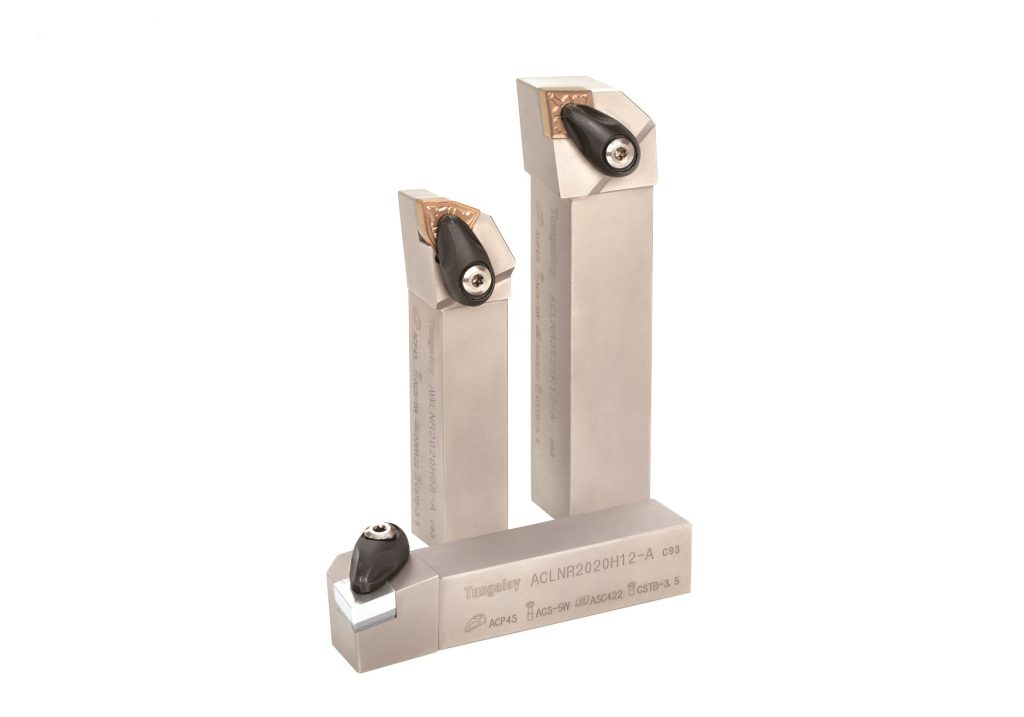Turning-A Series of OD Turning Holders
Turning-A Series of OD Turning Holders
Tungaloy is expanding its Turning-A series of OD turning holders to include short length holders.

Tungaloy is expanding its Turning-A series of OD turning holders to include short length holders.
For manufacturing shops that are using small-sized machine tools, standard turning holders are often too long to fit the machine turrets. To meet such demands, Tungaloy expands the Turning-A series to enhance its holder length variations. The new turning holders are available in square shank size 2020 with a functional length of 100 mm (compared with a standard length of 125 mm) and 2525 in a length of 125 mm (normally 150 mm), both of which are widely used on multitask machines of various brands. The holders accommodate CNMG1204 and WNMG0804 inserts. The initial range of holders encompasses 8 items, enhancing Tungaloy's expansive range of general OD turning holders.
At a Glance:
Ready-to-use short turning holders for OD turning applications eliminating the need for tool length modification before use
Holder sizes available in functional lengths of 100 mm for 2020 and 125 mm for 2525 to accommodate CNMG1204 and WNMG0804 inserts





